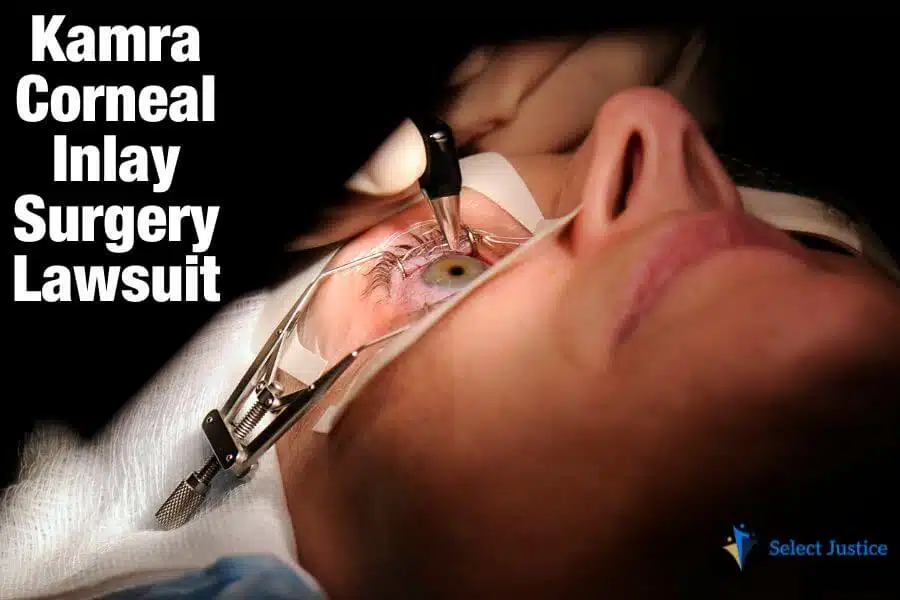As we get older, many of us will suffer deterioration in our eyesight. It’s common and widely accepted. One of the most frequent ways this happens is through a condition known as presbyopia, which sees the lenses of the eyes become too rigid, making it difficult to focus on objects at a distance and then see objects close up (or the other way around) without losing focus. Around two billion people globally are said to have some level of presbyopia. Of course, modern medicine can treat many ailments of the eye, and one such example is corneal inlay surgery. The procedure was first developed – and given approval – in the United States by AcuFocus with its Kamra Inlay corneal implant. Kamra Inlay is now owned by Corneagen.
Corneal inlay surgery involves the insertion of a small device (called the corneal inlay) into the cornea of the eye. The surgery requires laser treatment to cut a small slice in the cornea, creating a pocket into which the corneal inlay is implanted. The goal of the surgery is to help those regain proper depth of focus, ultimately improving overall eyesight. Usually, the implant is made in just one eye, and it takes just ten to fifteen minutes to perform. The surgery is only recommended for those between the ages of 45 and 60 who have presbyopia.
There are several things that can go wrong with corneal inlay implant surgery. Of course, any surgery in sensitive areas like the eye can go wrong. But specific Kamra corneal inlay surgery complications could include infection, blurriness, reduced vision quality, problems with night vision, and chronic dry eyes.
February 1, 2025
The KAMRA corneal inlay, designed to correct presbyopia by increasing depth of focus, has been associated with complications such as infection, blurred vision, reduced visual quality, night vision problems, and chronic dry eyes. Some patients have required explantation of the device due to dissatisfaction with visual outcomes, including blurry near vision, impaired night vision, and corneal haze. Studies have indicated that while the inlay is removable, patients may experience residual corneal haze, hyperopic shifts, and deficits in uncorrected distance visual acuity after explantation.
- January 1, 2025 - KAMRA Inlay: Pros, Cons, Costs & More
- August 1, 2024 - Lawsuits allege that the manufacturers failed to adequately warn patients of the risks. These cases are ongoing, with recent filings seeking compensation for vision loss and other adverse effects experienced by patients.
- July 1, 2024 - BCLA CLEAR Presbyopia: Management with corneal techniques
- March 1, 2024 - Effects of Miosis on the Visual Acuity Space under Varying Conditions of Contrast and Ambient Luminance in Presbyopia.
- January 1, 2024 - Fourier tools to evaluate refractive multifocal design. These algorithms can also be adapted to explore solutions involving small openings, like the IC-8 intraocular lens, Kamra inlay, or pharmaceutical approaches aiming at reducing pupil size.
Today, those who have experienced Kamra Inlay problems are being encouraged to contact personal injury lawyers to see if they are eligible for compensation. It is possible that we will see a wave of Kamra Corneal lawsuits from those who underwent the surgery due to complications. Indeed, it is worth noting that the FDA approval (see below) meeting for Kamra Corneal Inlay did see questions raised about the safety of the procedure by FDA panel members.
Currently, there is not an active Kamra corneal inlay FDA recall. However, a Class 2 FDA Recall for Kamra Inlay was ordered in February 2016. This was made due to concerns over expiry labels. In total, two lots of Kamra Corneal Inlays were recalled by then-owner AccuFocus. The Kamra FDA recall was terminated in May 2016.
What can go wrong with Kamra Inlay? Beyond complications with Kamra Inlay surgery, those who underwent the procedure may experience new problems linked to Kamra Inlays. These could include risks associated with the healing process of the incision, infection, and decreased vision (which could be permanent). Indeed, it’s worth noting that Kamra Corneal Inlay surgery, as well as similar procedures, are considered ‘out of fashion’ at the moment. In fact, Kamra Corneal Inlay is one of the few of its kind still on the healthcare market. For some, the question is: why risk surgery for a minor improvement in eyesight? Millions of Americans live with presbyopia every day, often using glasses or contact lenses to correct the ailment. Surgery is a big step, and it will always carry risks.
What is Corneal inlays?
A Corneal Inlay is a small implant in the cornea. It allows patients to have improved focus in their vision.
Is Kamra Corneal inlay discontinued?
No. Kamra Corneal Inlay is still offered in the United States and worldwide.
Is Kamra Corneal inlay safe?
Kamra Corneal has gained approval from the FDA and is marketed as a safe procedure. However, it is worth noting that there were safety concerns cited by FDA panel members during the vote for approval.
Does the Kamra Corneal inlay work?
Most patients claim that Kamra Corneal allows them to see better due to improved focus.
How long does the Kamra Corneal inlay last?
The Kamra Corneal Inlay can last up to ten years, provided you don’t have any other major changes in your eyesight.

Medical Malpractice
Dangerous & Defective Products
Personal Injury Lawsuits
DUI Lawyer Support
Employer Negligence
Mass Tort Lawsuits
Top Class Action Lawsuits
Expertise
Reviews
FAQ






